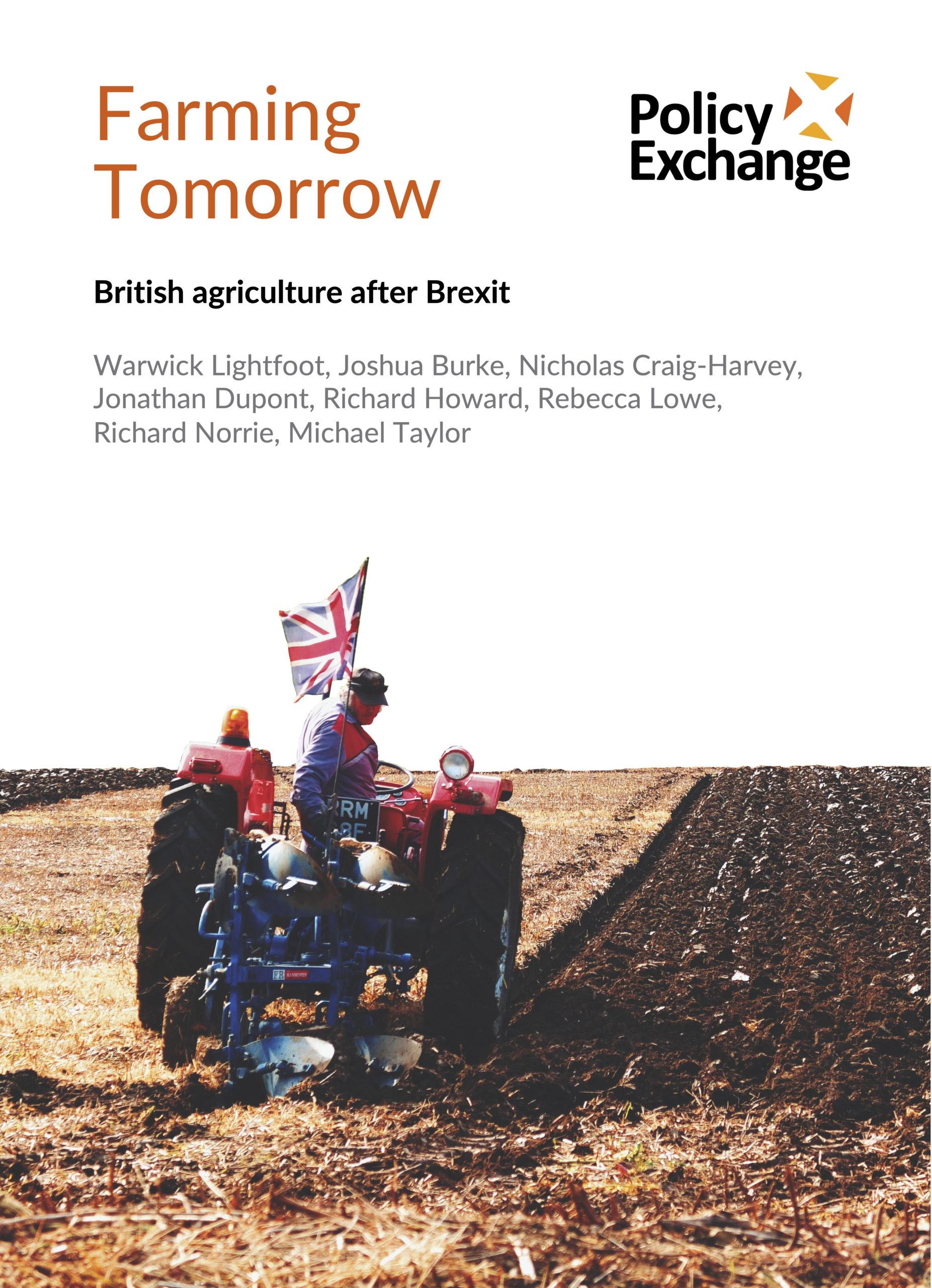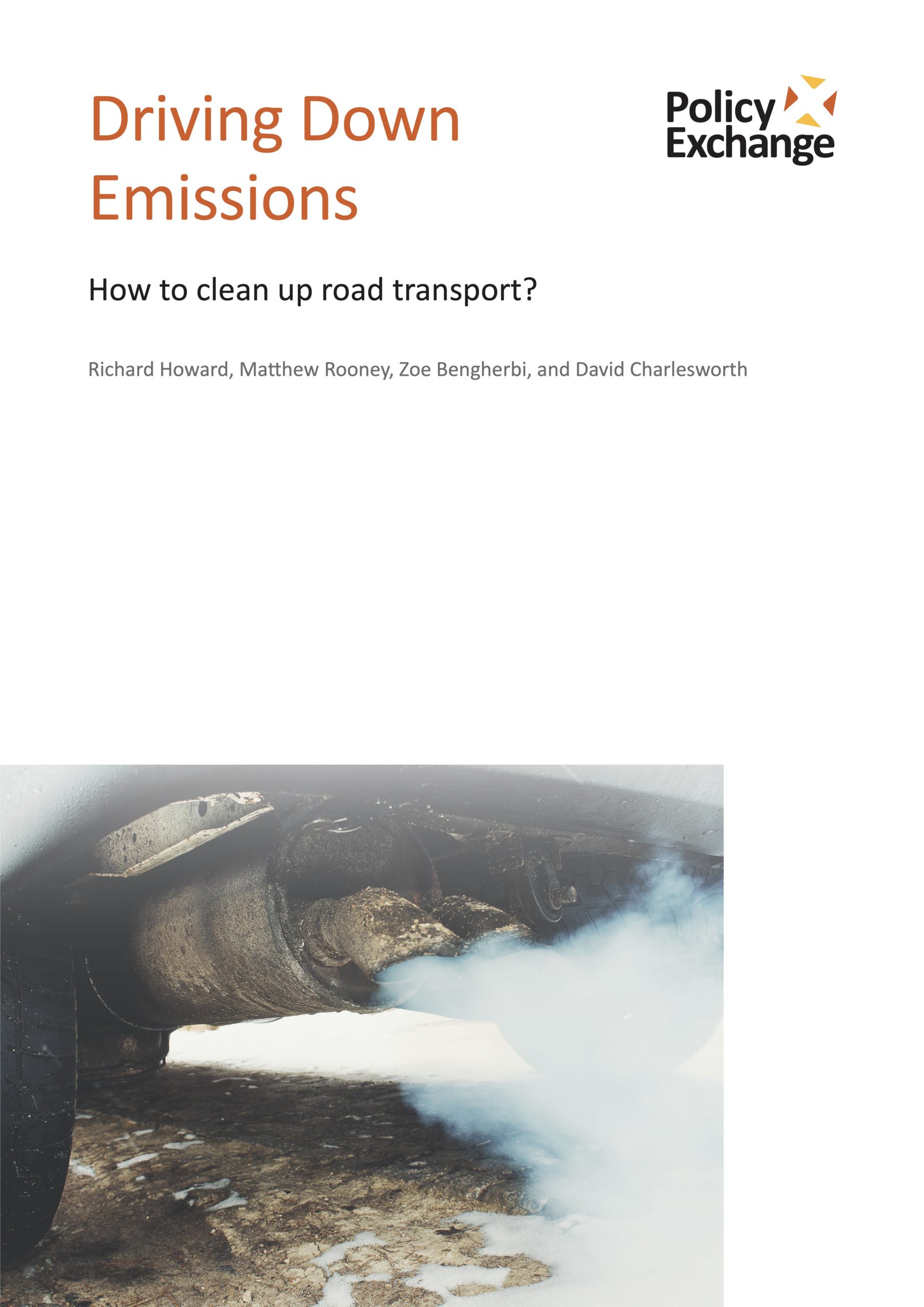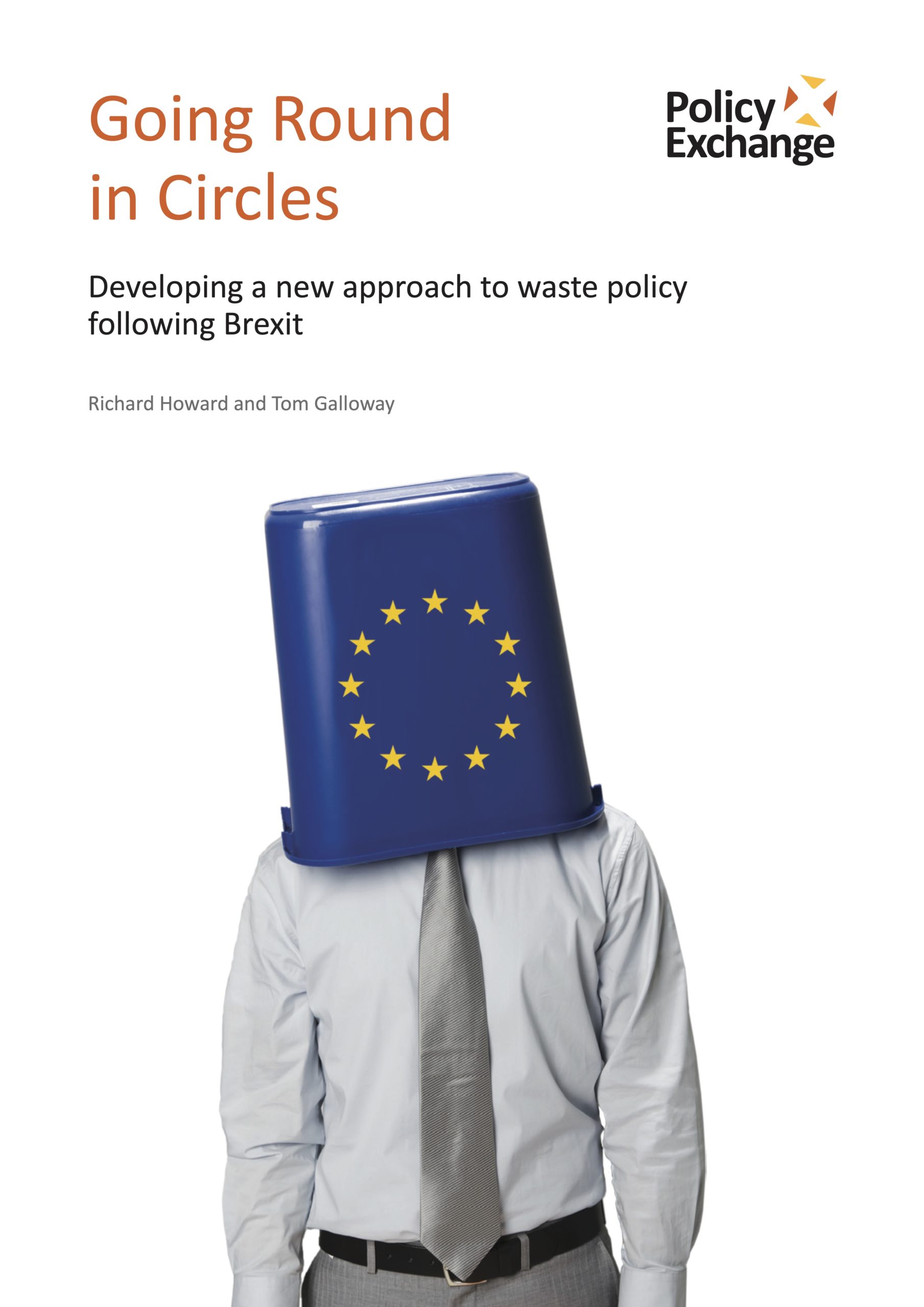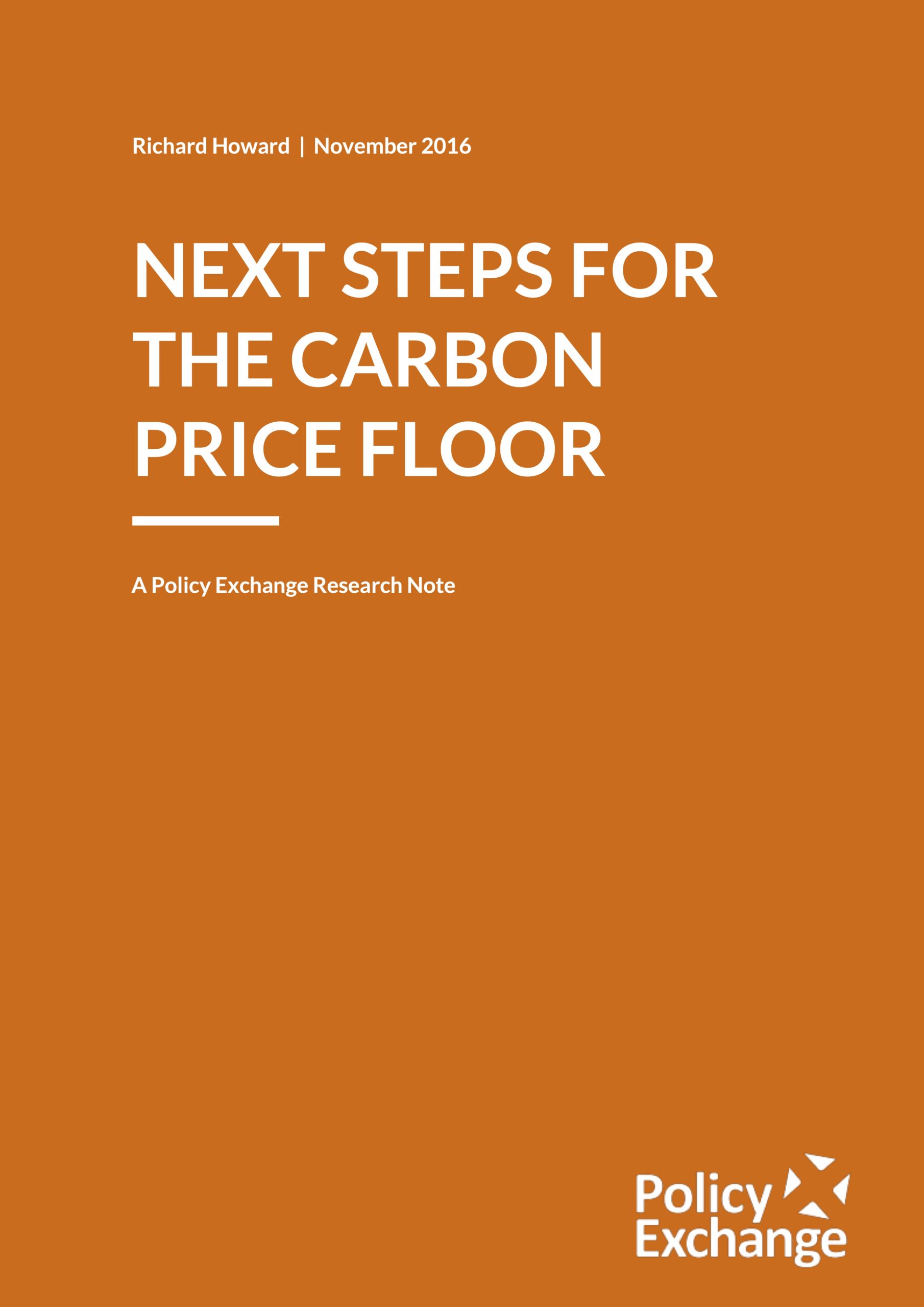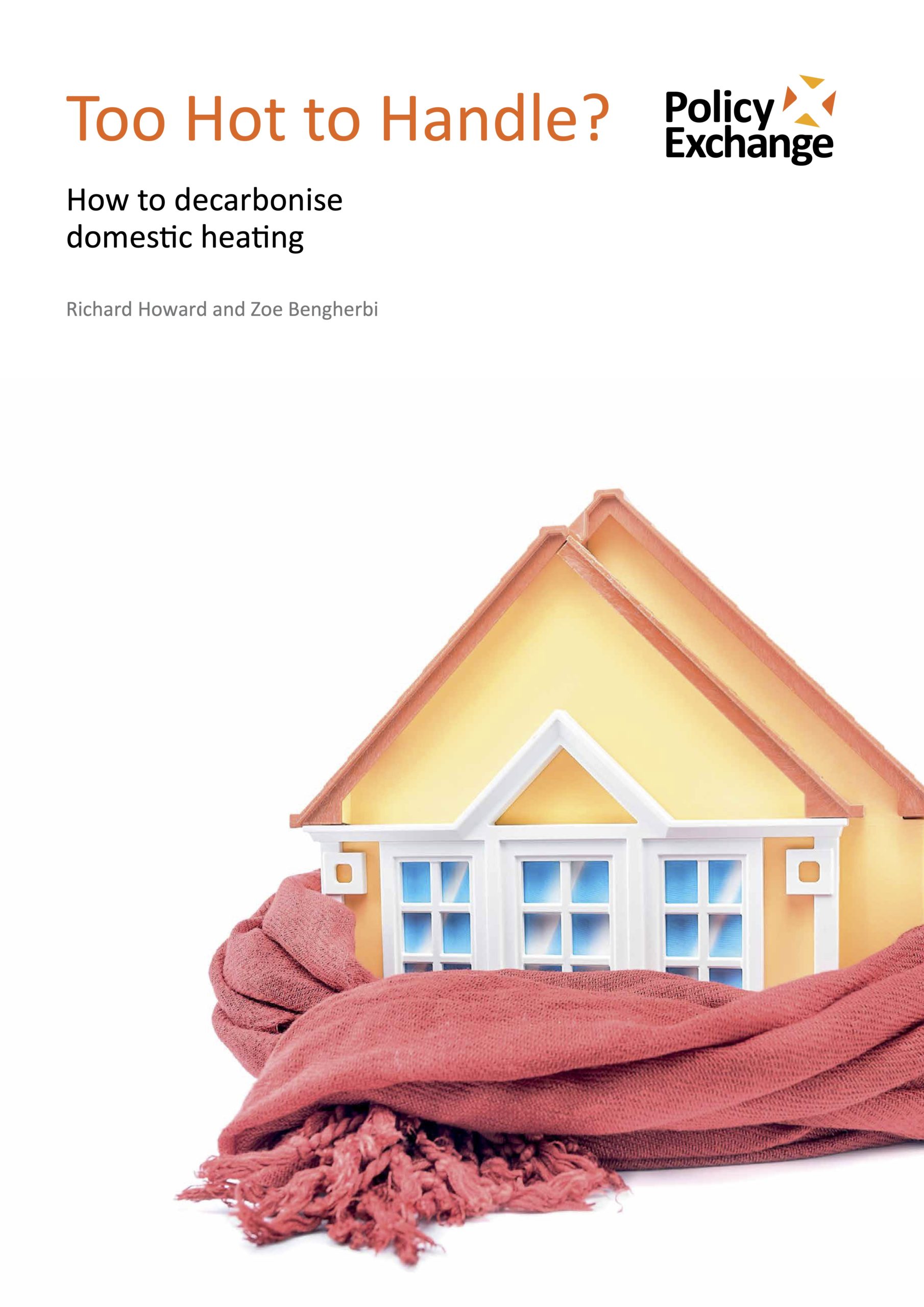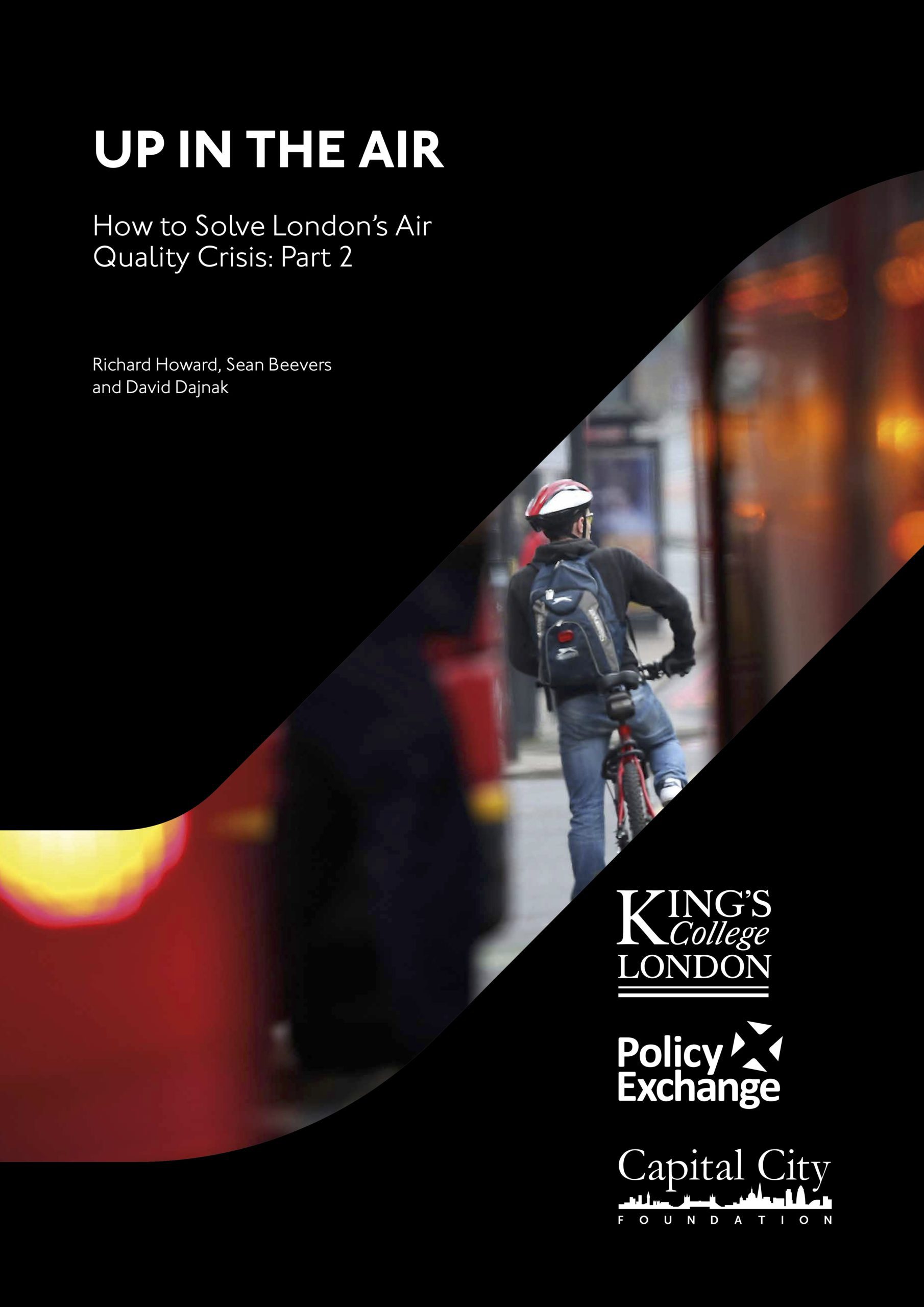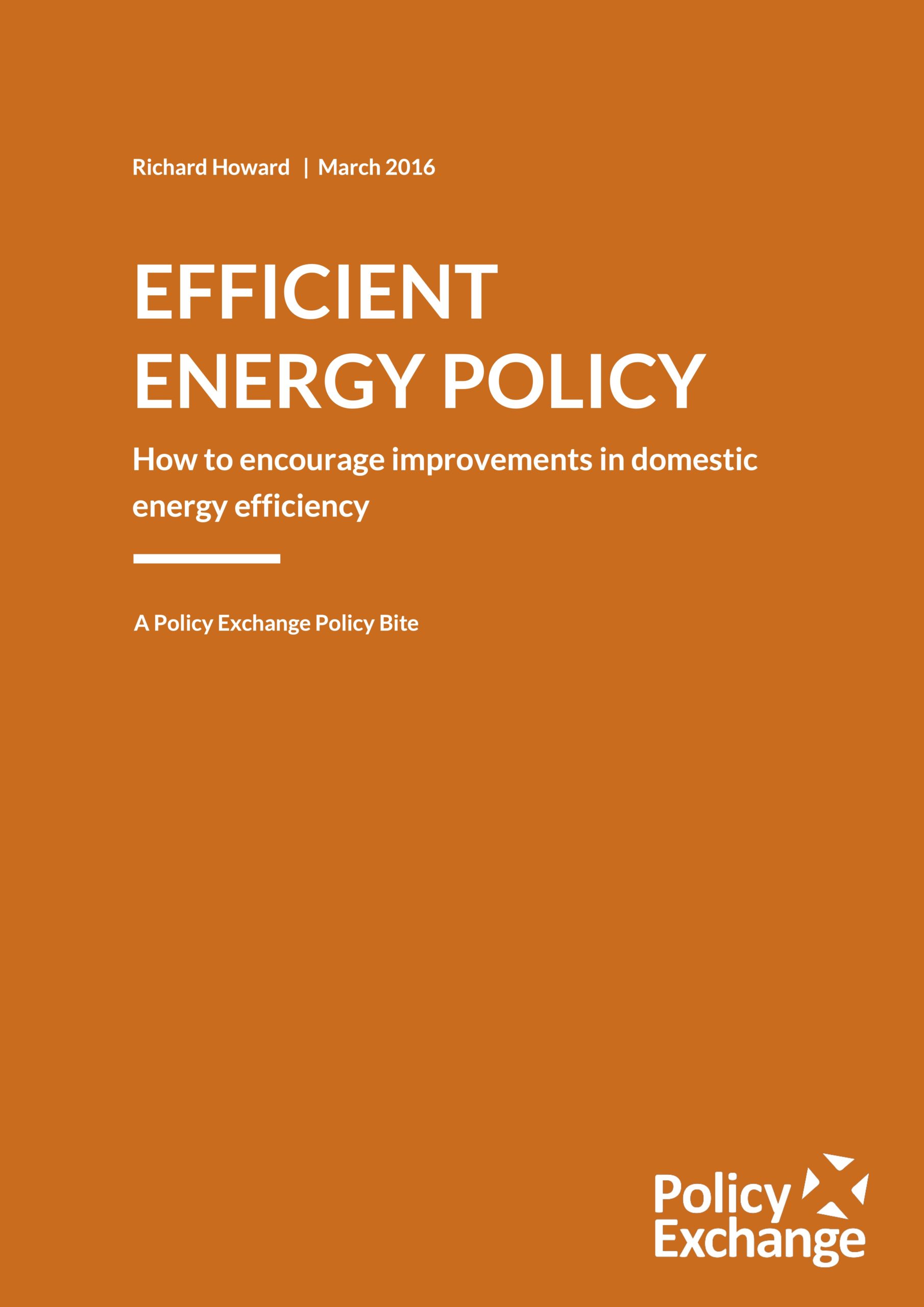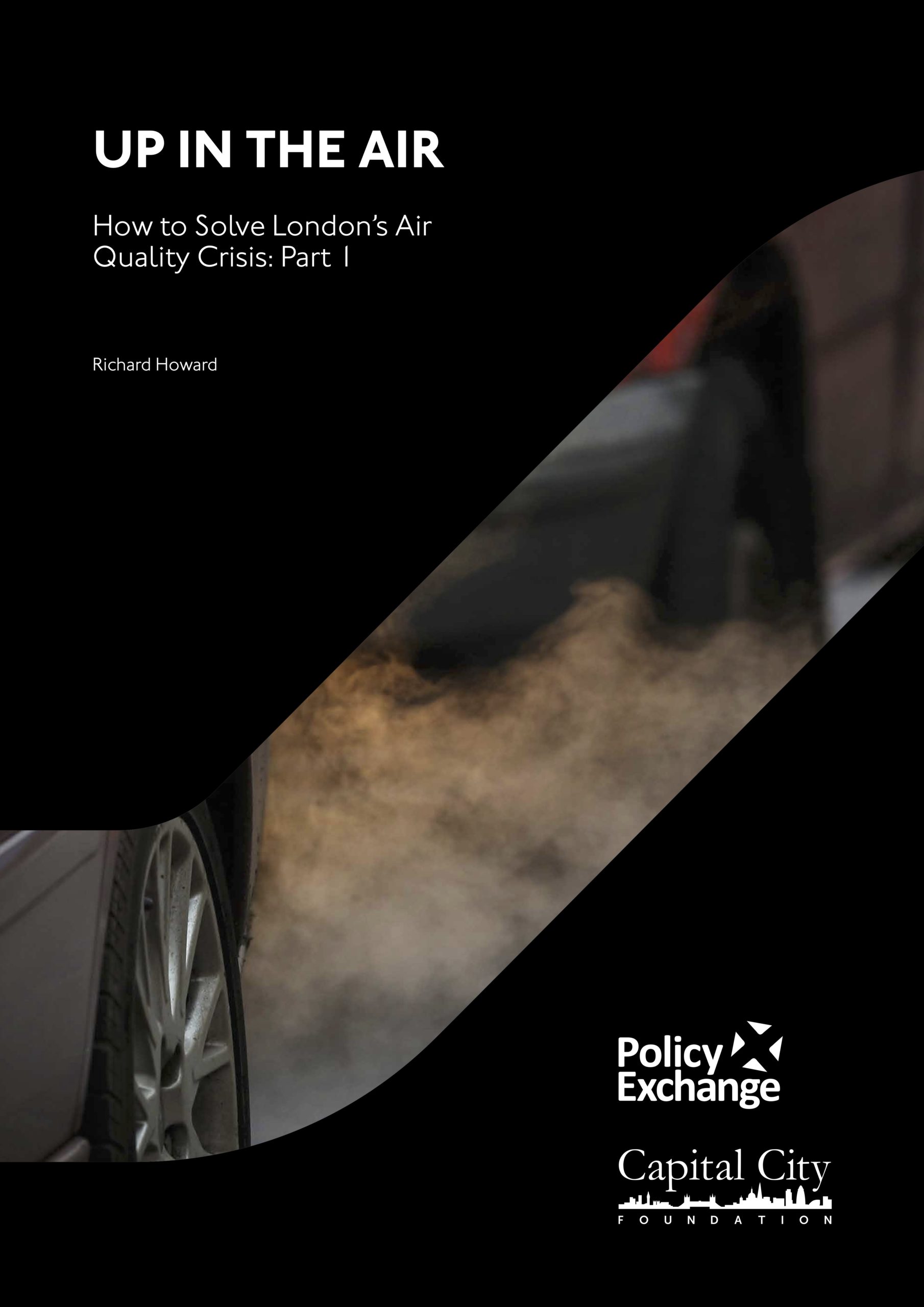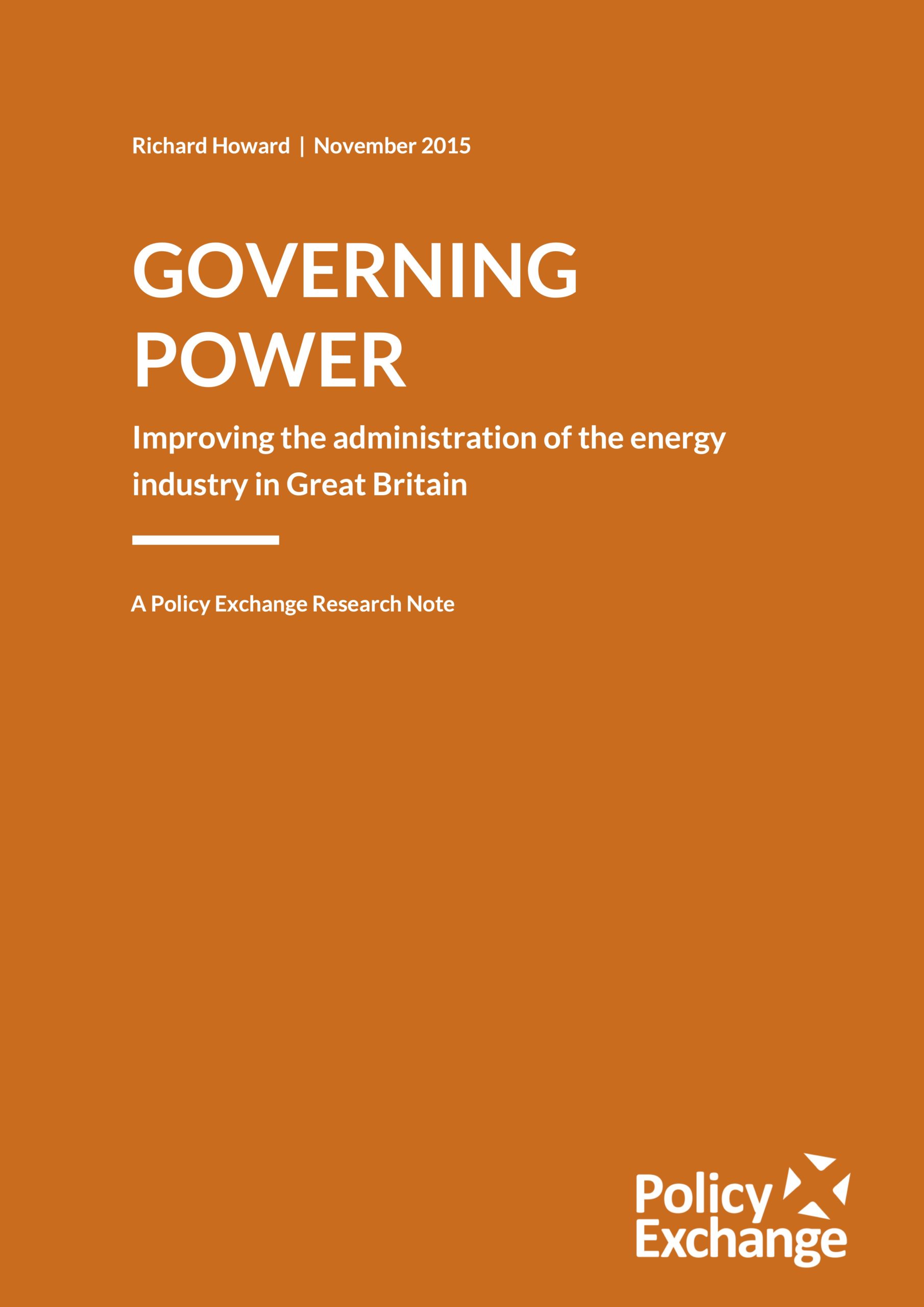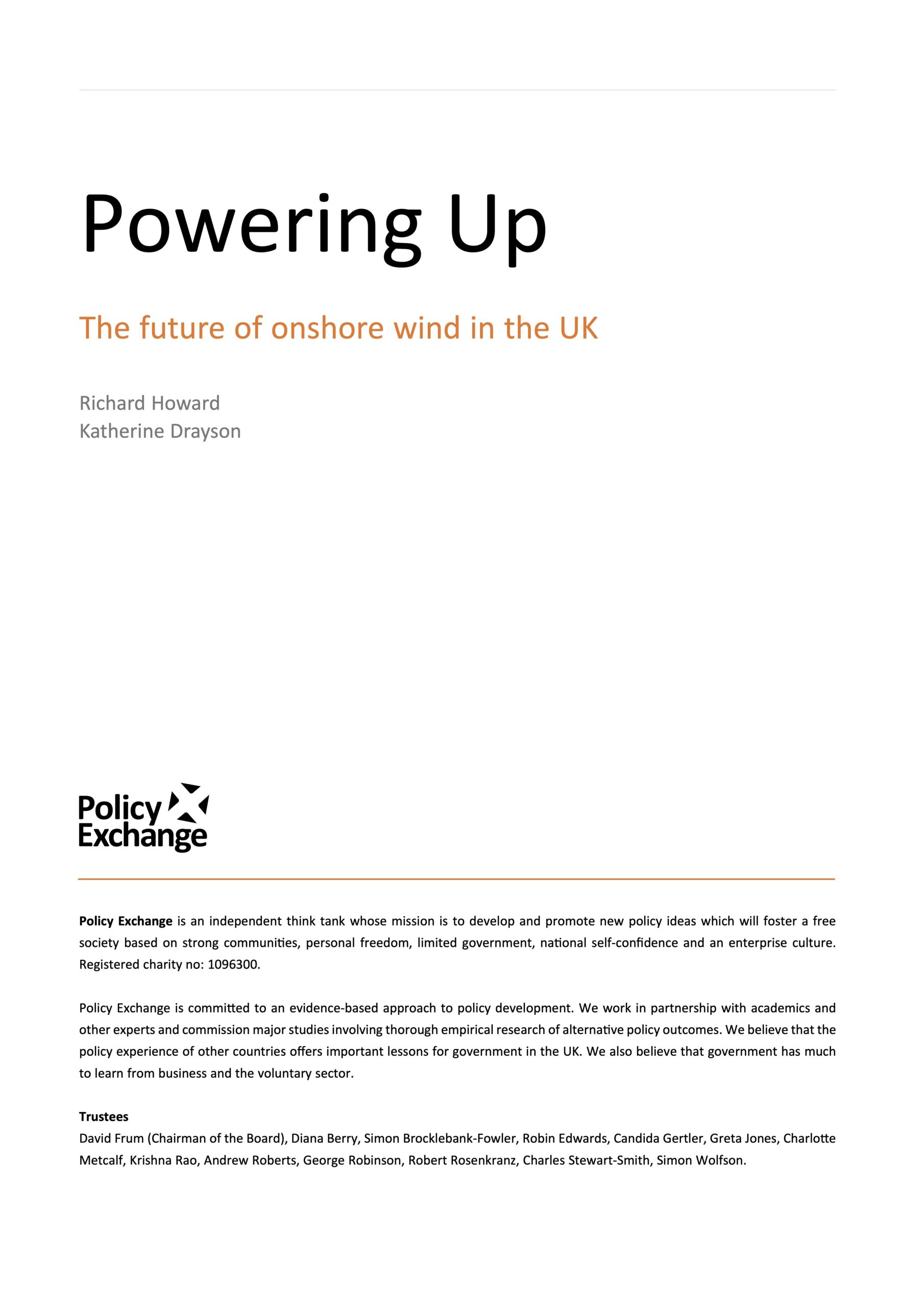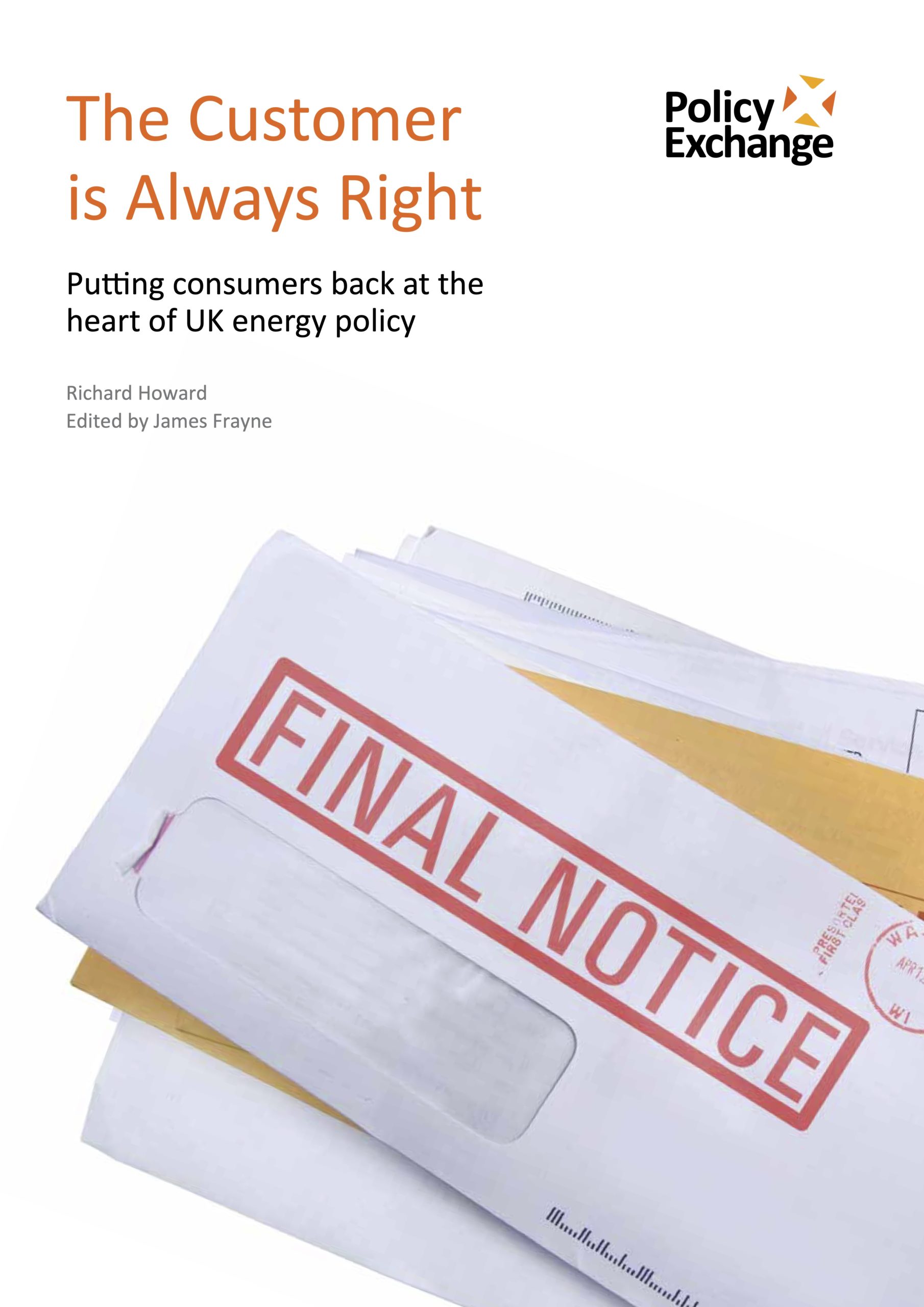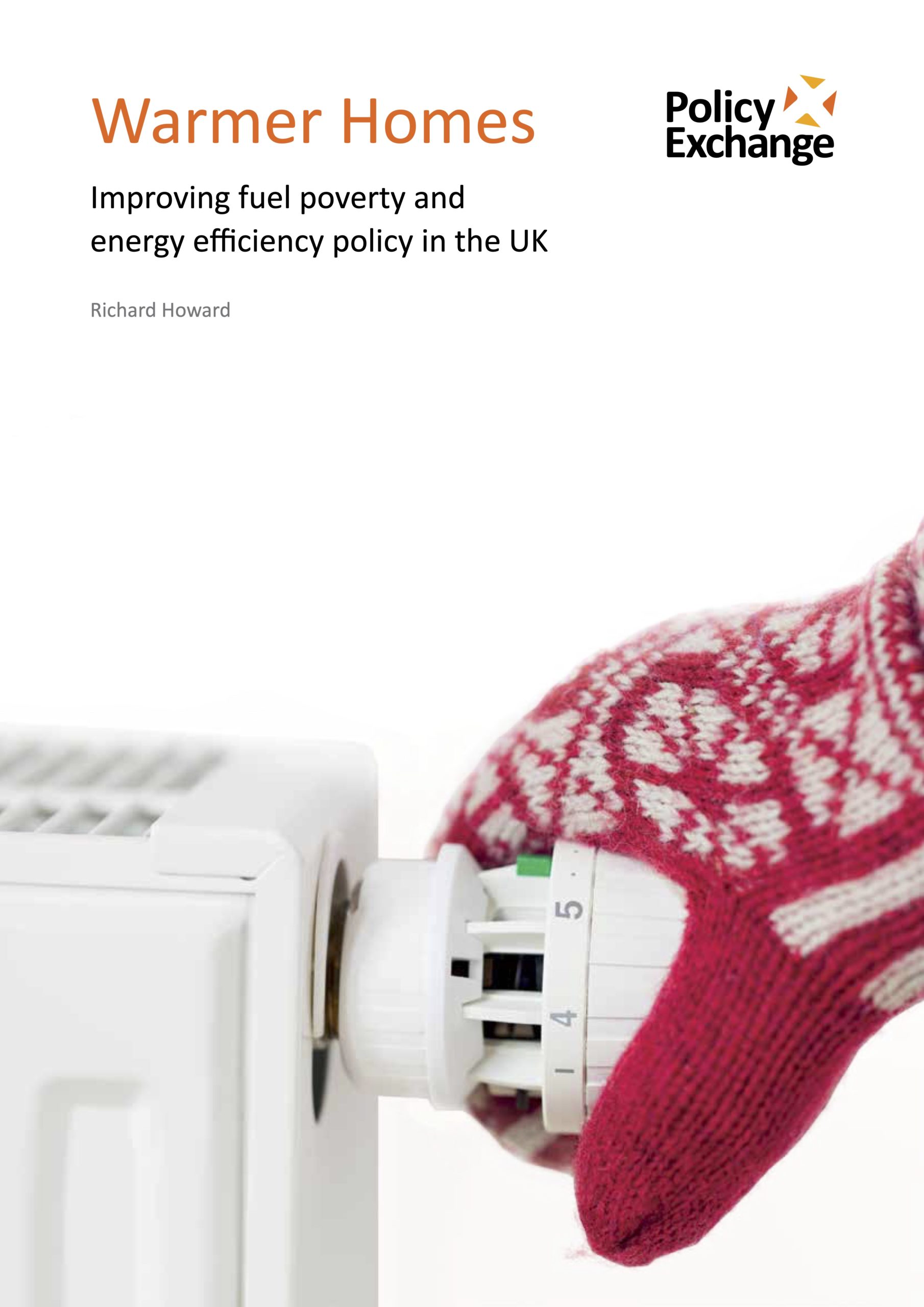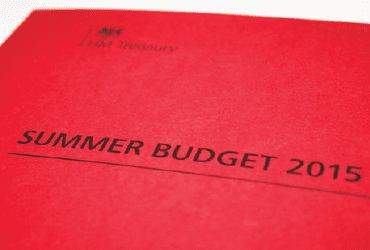Richard Howard
Director of Development &
Head of Environment & Energy
Richard Howard joined Policy Exchange in 2014 as Head of the Environment & Energy Unit. He has since produced a number of influential reports on topics including: energy policy and regulation, new energy technologies, fuel poverty, waste management, air quality, and industrial strategy. Richard has more than 10 years’ experience in energy and environmental policy, economics, and government affairs. His last role was as Chief Economist at The Crown Estate, and prior to that he worked as an economic consultant. He has a BSc in Economics from the University of Bristol and an MSc in Sustainability, Planning and Environmental Policy from Cardiff University, where he has been a visiting lecturer since 2009.
At the prestigious annual Prospect Think Tank of the Year Awards, Policy Exchange has won best UK think tank in the Energy and Environment category.
Richard Howard, Policy Exchange’s Head of Environment and Energy, discusses energy price rises and his recommendations for a relative model rather an absolute cap on energy prices, on BBC Radio 4's You and Yours
Together, a decade of loose public spending, fiscal stimulus and the aftermath of the financial crisis left Britain with the highest deficit in its post war history at 10.2% of GDP. Even half a decade later, that deficit is only half closed, and remains high internationally. Budgeting for Balance looks at the experience of fiscal consolidation so far, and how to approach the remainder of the task.
Time's report on Air Pollution and the London mayoral election quotes Richard Howard, head of Policy Exchange’s Environment and Energy unit.
Richard Howard, head of Policy Exchange’s Environment and Energy unit, is quoted by the Guardian on a new report by MPs on measures to clean up air pollution.
The Evening Standard report on the Policy Exchange Environment and Energy Unit's report "Up in the Air: How to solve London's air quality crisis - Part 2".
The Guardian cites Richard Howard's, Policy Exchange's Head of Environment and Energy, recommendations to put a £800 pollution tax on the sale of new diesel cars and reduce air pollution.
The Daily Telegraph covers Policy Exchange's launch of Richard Howard's, Head of Environment and Energy, new report Efficient Energy Policy, and how homeowners can save money by improving their home energy efficiency.
The Guardian cites Richard Howard's, Policy Exchange's Head of Environment and Energy, recommendations in his report Efficient Energy Policy including a call to the stamp duty on energy efficient homes.
Richard Howard, Policy Exchange’s Head of Environment and Energy, is quoted by The Guardian stating action is needed at EU level to set and enforce tough vehicle emissions standards, at national level to reform tax incentives for diesels, and at local authority level to create low emissions zones.
BBC News covers the Rt Hon David Cameron's speech on prison reform held at Policy Exchange.
The TES cites findings from Policy Exchange's recent report on air pollution - Up in the Air- that 25% of London's schoolchildren attend schools in areas with air pollution above legal limits.
BusinessGreen cites findings from Policy Exchange's new report Up In the Airthat more than 30% of London's schools are in areas with air pollution levels above the legal limit, and that more deprived areas are more likely to be afflicted.
The Evening Standard covers Policy Exchange's new Up In the Air report, which reveals the extent of air pollution in London. The report shows that 12.5% of London suffers from NO2 levels above legal limits, an area which includes 25% of London's schoolchildren and 44% of its workforce.
Richard Howard, Policy Exchange's Head of Environment & Energy, is interviewed on You and Yours discussing the effect changes in government energy policy will have on energy bills.
BusinessGreen cites comments by Richard Howard, Policy Exchange's Head of Environment & Energy, that the new energy efficiency scheme announced in the Spending Review is not nearly sufficient to tackle fuel poverty.
Richard Howard, Policy Exchange's Head of Environment & Energy, is quoted by The Telegraph commenting on government forecasts that wholesale gas and electricity prices will remain low for the next few years. He warned that low prices will undermine investment in new gas power stations.
The Daily Mail covers Governing Power, Policy Exchange's new report looking at how to improve the administration of the energy industry. The report highlights the overly complicated governance structure for the industry, with more than 30 bodies, many with overlapping functions, overseeing energy companies.
The Sun covers Governing Power, Policy Exchange's new report looking at how the energy industry is run. The report highlights the unnecessary complexity of the system, with more than 30 bodies, many with overlapping functions and with a total cost of more than £500m, all playing a role.
City AM reports calls from Policy Exchange's report Governing Power, which highlights the unneccessary complexity of the energy industry and how simplifying and consolidating it could save hundreds of millions of pounds.
BusinessGreen covers Policy Exchange's new report Governing Power. The report shows how the level of complexity involved in running the UK's energy industry is acting as a barrier to growth and innovation in the sector, and has pushed up administrative costs to more than £500m.
Richard Howard, Policy Exchange's Head of Environment & Energy, appears in front of the House of Commons Environmental Audit Committee to discuss privatisation of the Green Investment Bank.
This major new Policy Exchange report sets out the once in a generation opportunity that Brexit offers our nation to reform its agricultural and environmental policy. Since 1973, UK farm and food policies have conformed to the rules and objectives of the Common Agricultural Policy (CAP) — the EU’s principal policy programme. Doing so has, at great expense, reduced Britain’s agricultural productivity by lessening competition and supporting inefficient farmers. It has also increased costs for consumers. This report outlines opportunities to improve policy by focusing on four main interest groups: consumers, producers, the wider rural economy, and the environment. This report offers timely and comprehensive analysis and answers to some of the most pressing policy questions of our day.
In this major new report — by Policy Exchange's Head of Energy and Environment, Richard Howard, alongside Matt Rooney, Zoe Begherbi, and David Charlesworth — the case is set out that the Government must take more action now to tackle the twin problems of greenhouse gas emissions and air pollution from road transport. Amongst other key findings, the report's analysis reveals that hitting carbon targets will leave a £9-23 billion p.a. hole in tax receipts by 2030, and that official estimates of vehicle emissions and fuel efficiency are highly misleading.
Brexit presents a huge opportunity for the UK Government to develop a new approach to waste and resources policy. Rather than adopting the EU’s proposed 'Circular Economy Package’, which would cost British businesses an extra £2 billion over the next twenty years, the British government should use Brexit to define our own approach.
This scoping paper — written by Policy Exchange Economic and Social Policy Research Fellow, Jonathan Dupont, and Head of Environment and Energy, Richard Howard — looks at the big questions surrounding a new Industrial Strategy
In this new report, Richard Howard — Policy Exchange's Head of Energy and Environment — urges the government to provide clarity about the future of the Carbon Price Support in the forthcoming Autumn Statement
New Policy Exchange report sets out the economic and environmental case for creating a smarter power system, using clean technologies such as battery storage and demand response.
Richard Howard, Head of Environment and Energy, warns that the previous Government’s plan to install electric heat pumps in 4 out of 5 homes is a colossal waste of money, and sets out an alternative strategy to decarbonise heating.
Up in the Air: Part 2 sets out a comprehensive package of measures to clean up air pollution in London, in particular focusing on the two main sources of pollution – road transport and gas combustion.
Efficient Energy Policy states home-buyers would be encouraged to buy more energy efficient properties if Stamp Duty was directly linked to the energy performance of a home. The report argues that promoting home energy efficiency could not only reduce energy bills, but is also one of the cheapest ways to cut carbon emissions.
Nearly 25% of all school children in London and 44% of the Capital’s workforce are exposed to levels of air pollution that exceed legal and healthy limits. Up in the Air analyses data from over 100 air quality monitoring sites across London. It shows the most polluted parts of the capital currently have levels of Nitrogen Dioxide (NO2) nearly four times the legal limit, with 12.5% of London's total area exceeding the legal limit for NO2, and that deprived areas are more likely to be affected.
DECC could save hundreds of millions of pounds and promote more competition and innovation among energy companies by sweeping away swathes of energy quangos at the Spending Review. Currently more than 30 bodies, many with overlapping functions and with an annual cost of £600m a year, govern energy policy, regulations and rules.
Onshore wind is the most cost effective and scaleable low carbon technology in the UK and should be allowed to continue, albeit with subsidies phased out, if the government wants to decarbonise at least cost to the consumer.
For too long policymakers have failed to strike the right balance between energy affordability and decarbonising the economy. Ill thought through energy and climate policies have added £120 to the average household energy bill over the past five years. While reducing carbon emissions remains critical, if the government wants to retain support for this goal it must focus on carrying it out in a way that reduces the price of energy bills.
Warmer Homes presents a character profile of the 2.3 million households in England living in fuel poverty. Among the findings in the report is the fact that nearly half of all fuel poor households (1.1m) are in work, challenging the perception that fuel poverty primarily involves the elderly and retired.
Policy Exchange's Energy and Environment unit announces the launch of its new project looking at the opportunities for and barriers to boosting business energy efficiency. Richard Howard and Joshua Burke set out the context for this project, and identify the important questions they will seek to answer.
Policy Exchange’s Head of Energy and Environment, Richard Howard and Economic & Social Policy Research Fellow, Jonathan Dupont, report on a roundtable Policy Exchange hosted this week with politicians, regulators and leading businesses to look at some of the pressing questions concerning disruptive innovation and regulation.
Richard Howard — Policy Exchange’s Head of Energy and Environment — responds to Volvo's announcement that it will only sell electric and hybrid vehicles from 2019 and the news that France is to ban the sales of new petrol and diesel cars by 2040. He asks whether this marks the beginning of the end for the combustion engine.
In a major new report released today, Driving Down Emissions, Richard Howard — Policy Exchange’s Head of Energy and Environment — argues that the Government must take more assertive action to tackle the twin problems of greenhouse gas emissions and air pollution from road transport.
Writing in The Telegraph, Richard Howard, Policy Exchange's Head of Environment and Energy, concludes Theresa May should look at a relative model rather an absolute cap on energy prices
In this blog, Richard Howard, Head of Environment and Energy, discusses the opportunity to revamp the Green Deal energy efficiency loan scheme, following the sale of the scheme to the private sector earlier this year. This blog is a write up of a Policy Exchange roundtable which took place in February 2017 involving policymakers, energy companies, and consumer groups
“EU waste diktat could cost Britain £2 billion”. That is the headline from a new report published by Policy Exchange today, 'Going Round in Circles'. The report provides a critical review of European and UK policies concerning waste and recycling.
Richard Howard — Policy Exchange’s Head of Energy and Environment — responds to the Government’s eagerly-awaited green paper on developing a new Industrial Strategy. He also summarises the key points from Policy Exchange’s roundtable discussion featuring leading manufacturers.
The Government has launched the first details of its long-awaited Modern Industrial Strategy with the publication of a Green Paper. It shares much of Policy Exchange's analysis
If ever there was a textbook example of how to go about Government lobbying and project development, then it is the Swansea Bay Tidal Lagoon project. The developer, Tidal Lagoon Power, has done a frankly incredible job of promoting the project to policymakers and financiers. The project has gone from an interesting idea on paper a few years ago, to being backed financially by investment bank Macquarie amongst others, to […]
Richard Howard — Policy Exchange's Head of Energy and Environment — and Jonathan Dupont — Economic and Social Policy Research Fellow — argue that a new industrial strategy is 'about creating a British economy which is innovative and competitive, which benefits everyone'. This piece first appeared on CapX
Yesterday marked the launch of a new Policy Exchange report, Power 2.0, on how to build a smarter, greener, cheaper electricity system. The report argues that in order to further decarbonise the power system and integrate renewables, it is essential that we also create a smarter, more flexible power system to manage intermittent power supplies. Failure to do so could significantly increase the cost of decarbonising the power system and […]
Policy Exchange's Head of Energy and Environment, Richard Howard, discusses seeming 'desire on the part of the new Government to intervene in energy markets in order to secure a better deal for consumers'.
Richard Howard, Policy Exchange's Head of Environment and Energy, previews this year's conference events on the topic of "smart power".
In my recent report on air pollution in London, I argued that the new Mayor of London needs to create and deliver a more ambitious plan to clean up London’s air. At the same time, I recommended that this should be done in ways which do not unduly penalise local residents and businesses; that coordinated action is needed at London, national and European level to tackle the problem; and that […]
In this blog, Richard Howard, Policy Exchange’s head of environment and energy, considers the potential for a number of emerging technologies to improve urban air quality.
Following on from our recent reports on air pollution in London, this blog provides a detailed comparison of the Mayoral candidates’ policies to clean up London’s air.
Policy Exchange launches Responding to Demands, a new project which will explore how to unlock “smart power” technologies such as storage and demand response.
To mark the publication of our new report Up in the Air: Part 2, Richard Howard, Policy Exchange’s Head of Environment and Energy, sets out a ten point plan to solve London’s air pollution crisis.
Richard Howard, Policy Exchange's Head of Energy and Environment, discusses recommendations for a higher road tax on new diesel cars to improve air quality.
Richard Howard, Policy Exchange’s Head of Environment and Energy, argues that the best way to drive home energy efficiency is to structurally embed it into the housing market, as proposed in a new report Efficient Energy Policy.
Richard Howard, Policy Exchange’s Head of Environment & Energy, looks at the prospect of a boiler scrappage scheme, and argues the ambition of the scheme should be increased.
Richard Howard, Policy Exchange’s Head of Environment and Energy, looks at the impact of falling oil and gas prices on the UK economy, and energy and environmental policy.
Richard Howard, Policy Exchange's Head of Environment & Energy, argues that, whilst the UK's plans to phase out coal power generation will deliver significant decarbonisation for relatively little cost, the challenge of maintaining security of supply as the coal fleet retires will be large.
Richard Howard, Policy Exchange's Head of Environment & Energy, sets out the findings from our new report on air pollution in London, Up In the Air. The report reveals that 25% of London's school children, and 44% of London's workers spend their day in areas with NO2 levels above legal limits.
Richard Howard, Policy Exchange's Head of Environment & Energy, sets out the legal, moral, health and fairness cases from his new report Up In the Air for doing more to combat air pollution in London.
Richard Howard, Policy Exchange's Head of Environment & Energy, reviews energy secretary Amber Rudd's recent speech on resetting energy policy. The most significant announcements included plans to phase out coal generation by 2025 and the government's willingness to support up to 10GW of additional offshore wind capacity.
Richard Howard, Policy Exchange's Head of Environment & Energy, sets out what energy secretary Amber Rudd should say in her forthcoming "energy policy reset" speech.
Following up on his recent report Powering Up, Policy Exchange's Head of Environment and Energy Richard Howard writes about what 'subsidy free' onshore wind might mean in reality.
Richard Howard, Policy Exchange's Head of Environment & Energy, responds to dissenting views on his new report The Customer is Always Right, which criticised governmental overspend on renewable energy subsidies and argued that government must focus on keeping bills down.
Policy Exchange takes a more detailed look at the Summer Budget, including: the impact of the Living Wage; the reduced pace of departmental spending cuts; the fundamental shift in welfare policy; what awaits Housing Associations; and the impact of changes to energy levies.
Using new OBR figures from the Summer Budget, Policy Exchange's Head of Environment & Energy Richard Howard reveals that DECC has not only overspent it's budget for renewable energy subsidies, but has also overspent the 20% of headroom allocated for any overspend as well.
Richard Howard, Policy Exchange's Head of Environment & Energy, responds to the CMA's report on its investigation into the energy market.
Richard Howard, Policy Exchange's Head of Environment & Energy, comments on the government's announcement that it wishes to part-privatise the Green Investment Bank. Whilst such a move may make things easier for the Bank, Richard questions whether the Bank would not just become the same as any other commercial bank, in which case why retain a stake at all?
Richard Howard, Head of Policy Exchange's Environment and Energy unit, argues that the Department for Energy and Climate Change has underestimated the cost of energy policies with drastic consequences for future budgets. With reference to data from an upcoming Policy Exchange report, Richard shows that DECC needs to adapt rapidly to avoid being unable to fund future projects.
Richard Howard, Policy Exchange's Head of Environment & Energy, reviews our recent Return of the State event, looking at the role of the state in the energy sector. He argues that, after a long period of minimal interference, the state is now back in the sector, and for good.
Policy Exchange responds to announcements in Budget 2015 in the areas of government spending, capital ownership, housing and energy policy.
Richard Howard, Policy Exchange's Head of Environment & Energy, looks at the results of the government's renewable energy auction. Whilst far superior to what came before, Richard shows how the process can be improved further.
Richard Howard, Policy Exchange's Head of Environment & Energy, looks at the main findings from the recent CMA report into the energy market and uses them to critique the conflicting approaches between the Coalition and Labour as to how to fix it.
Richard Howard, Policy Exchange's Head of Environment & Energy, sets out how we can improve the delivery of energy efficiency schemes such as ECO and the Green Deal.
Following the first auctions for renewable energy subsidy, Richard Howard, Policy Exchange's Head of Environment & Energy, looks at how the auctions can be improved in order to bring down the cost of renewable energy generation.
Following the first auctions for renewable energy subsidy, Richard Howard, Policy Exchange's Head of Environment & Energy, unpicks some of the assumptions made by DECC in assessing the cost of the new Contract for Difference mechanism.
Richard Howard, Policy Exchange's Head of Environment & Energy, sets out 6 key facts on fuel poverty from our new report Warmer Homes. Richard reveals that the UK's housing is woefully inefficient compared to our European neighbours, that the most inefficient households could have to pay £1700 a year to adequately heat their homes, and that 1.1m fuel poor households are actually in work.








